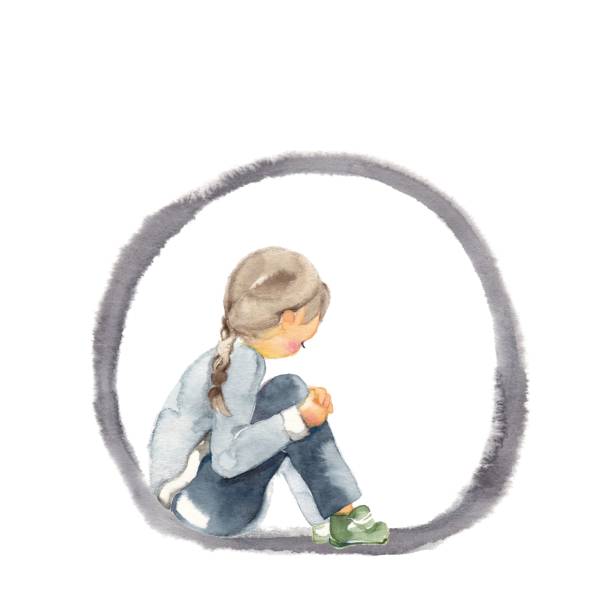 Stranger Danger is one of the easiest, and by far, the most common child safety measure we teach our children. We talk to them about family words when another adult is picking them up, not helping strangers look for lost puppies, and not accepting candy from people we don’t know. However, in the case of child sexual abuse, the research shows that the predator is often a beloved family member, close friend, trusted community member, and/or the person we least expect. When a disclosure is made, the parent is often blindsided by the knowledge that someone they knew and trusted has betrayed them.
Stranger Danger is one of the easiest, and by far, the most common child safety measure we teach our children. We talk to them about family words when another adult is picking them up, not helping strangers look for lost puppies, and not accepting candy from people we don’t know. However, in the case of child sexual abuse, the research shows that the predator is often a beloved family member, close friend, trusted community member, and/or the person we least expect. When a disclosure is made, the parent is often blindsided by the knowledge that someone they knew and trusted has betrayed them.
Sexual abusers look like us, they are charming and likable, they most likely have adult sexual partners, and spend just as much time grooming the parents as they do the children. These individuals intentionally build relationships (READ: How Predators Groom and Control Their Victims) with the adults around a child or seek out a child who is less supervised by adults in her/his life. This increases the likelihood that the offender’s time with the child is welcomed and encouraged.
So how do we prevent the situations that give predators opportunity to hurt our children, and how do we empower and inform our children on how to defend against abuse and feel safe to report it to trusted adults?
- Talk about body parts from a young age and use the proper words.
Tell children that that some body parts are private. Most prevention information will say that mommy and daddy are the exception, but this fails to address the unfortunate reality of incestual abuse. Kids need to be told that very rarely do parents need to be involved with their private areas, and if they are uncomfortable when anyone touches them, they should tell the other parent.
- Tell them to say no to other children and older kids who make them uncomfortable.
Let them know older kids (including older relatives) can try to make them do things they do not want to do, and even other children are not allowed to touch their private areas. Sexual curiosity is normal for teenagers, but unfortunately, some use younger children to express this curiosity, and it is important to be vigilant about it.
- Model body boundaries
Avoid being naked around the house and around your children. Keep doors shut when you are changing. Even though it may not be sexual for you, it can desensitize your child to it when a predator does it.
- Tell your child that secrets are not okay
They should know that both parents need to know all secrets if their body is involved. Do not ask your children to keep secrets. Communicate freely and directly with them about other things, so they feel permission to do the same.
- No pictures of private parts
Explain to your child that no one should take pictures of their private parts. Don’t then be caught taking inappropriate selfies (even if it is for your spouse). If your child thinks it is OK for you, they will feel like a “grown-up” when someone asks them to do it. - Emphasize body autonomy
Ask permission of your child before you touch them. Never make them hug or kiss someone they don’t want to. Parents do this all the time without realizing it, and we only see it as a problem AFTER there’s a problem.
- Teach your child how to get out of scary or uncomfortable situations, even if it’s rude
We stress to our children the need to be polite to adults and to not hurt anyone’s feelings. If they’re uncomfortable, they have permission to say no and tell them how to seek help in various situations. Compliance is not a good trait to encourage in your child if you are trying to protect them from abuse.
- Pay attention when your child tells you that they don’t like someone
Accept it, and don’t force them to like them. You need to demonstrate that you respect their autonomy and their ability to set boundaries with people they don’t like. Parents may miss important clues about potentially abusive situations if they discount things their children tell them.
- Let your child know you trust and believe them
There are no exceptions to this rule, even if the information is about your own spouse, parents, or sibling. Let your child know that you can handle anything they say. If you melt into a basket case when something minor happens, they won’t come to you for something major.
- Disabuse yourself of the assumption that a loved one couldn’t harm your child
Acknowledge the presence and realities of child predators. They will most likely not be a stranger, and they may be someone you trust. Single parents who are dating must be extremely vigilant, because their child is at an increased risk of abuse. Research showed that one in six girls in a blended family were abused by a stepparent. Predators will date parents to gain access to the child.
- Be very selective
Be selective about who you let around your children alone. This includes coaches, priests, relatives, romantic partners, friends with older siblings, etc. Most adults prefer the company of other adults. If someone is offering to be alone with your child often, be mindful.
- Investigate new gifts and toys
Scrutinize gifts, new clothes, toys or money that your child may have. Ask where they came from and why. This is a common grooming tactic of child predators.
- Watch for changes in behavior
Notice behavioral changes in your child- positive and negative. Initially a child may feel elated and special with attention. Some children descend into negative feelings, actions, addictions, cutting, withdrawal, eating disorders, and isolation.
- Ask direct questions
Be direct, and openly ask your child if you have a suspicion of abuse. If you can’t ask an uncomfortable question, how can you expect them to tell you an uncomfortable truth?
Knowing the methods of child predators is helpful in avoiding situations that put children at an additional risk. When the unthinkable happens, and a child makes a disclosure of sexual abuse, it’s imperative that parents react appropriately and take immediate action to not only protect their child but to prevent the abuser from moving on to another victim. (READ: 10 Things to Do and Say in a Disclosure of Sex Abuse)





Join the Conversation